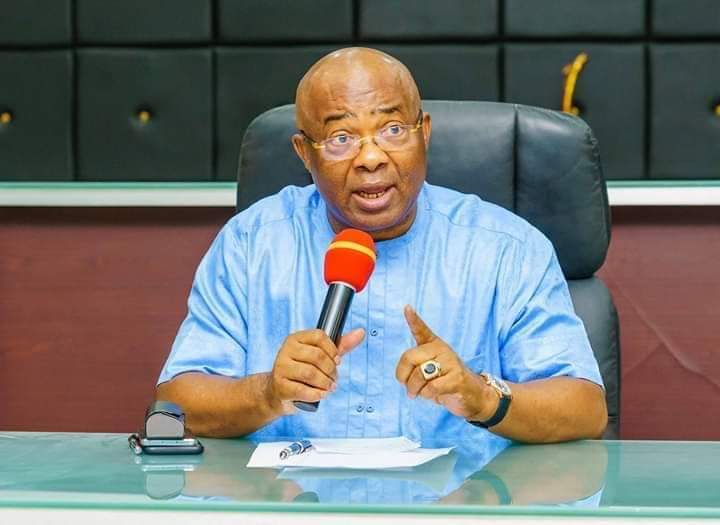ARTICLE AD
A chieftain of the All Progressives Congress (APC), Osita Okechukwu, has dismissed calls by some opposition politicians for a merger to oust the ruling party in 2027.
Recall that the candidate of the Peoples Democratic Party (PDP) in the 2023 presidential election, Atiku Abubakar, has been championing the call for a coalition among the main opposition parties.
In a message to congratulate Senegalese President-Elect Bassirou Faye, Atiku urged all opposition parties to “forge a coalition that is formidable enough to oust the ruling party if the salvaging of Nigeria is to stand any chance.”
Also speaking recently, a member of the Labour Party (LP), Pat Utomi, announced ongoing talks on the possibility of a merger among the parties.
But in a statement on Sunday, Okechukwu said there are many reasons to outrightly dismiss these calls and the erroneous premises on which they were anchored.
He said the circumstances that will make it possible for opposition political parties to forge a formidable coalition to oust the APC differ remarkably from when the PDP was defeated in 2015.
He said: “First of all, on the possibility that the persistent call for opposition political parties to forge a formidable coalition to oust the APC like the PDP was defeated in 2015, Okechukwu said circumstances on the ground differ remarkably.
“Secondly, dethroning an incumbent President should not be a political pastime, but as a practical political consciousness to remove an underperforming administration. Tinubu sure, steady and more allocations to state governments.”
The former Director General of the Voice of Nigeria (VON) explained that the difference in Nigeria’s socioeconomic situation between 2015 and 2024 is clear.
He stressed that while in 2015, Nigeria lost focus, today, despite the socio-economic hardship, both the international and local communities agree that President Bola Tinubu’s administration has courage, vision, and focus.
He said: “Yes, my understanding is that Atiku was referring to the current socio-economic hardship, but the truth is that whether you like it or not, President Tinubu has focus. In 2015, under President Goodluck Jonathan, there was little or no hope.
“Luckily, Mr President has with his economic reforms, won the confidence of the international community. All he needs is to domesticate his economic programme to benefit the greatest number of Nigerians.”
Okechukwu said he believes that a formidable opposition coalition is healthy for Nigeria’s democracy, saying that it is incumbent on Atiku, Utomi, and others to convince Nigerians on which economic philosophy the coalition would be anchored.
“Nigerians know that all the leading presidential candidates in 2023 were all neo-liberals. For instance, like Tinubu, Atiku and Obi agreed to remove fuel subsidies and to harmonise the foreign exchange rate.
“Since they all belong to the neo-liberal school of thought and are capitalists, they better support Mr President, because the success of Tinubu’s economic reforms is better for such students more than those of us who subscribe to the belief that government has business in our welfare.”
Okechukwu said President Tinubu acknowledges the challenges his policies are causing Nigerians.
He said, “There are two things going positively for President Tinubu. One is that the international community’s buy-in is high, which means that foreign direct investment, which propels prosperity, is guaranteed over time.
“Secondly, unlike President Muhammadu Buhari, whose rising tide of expectations was high at inception on issues like anti-graft war and economic empowerment, that of Tinubu is starkly low. This is to say that not much was expected from President Tinubu from the onset. The bottom line is that he will garner local buy-in with time instead of declining expectations.”
Okechukwu reminded merger canvassers to study the Senegalese opposition, recalling how in 2014, Ousmane Sonko invited his friend and fellow tax collector, Bassirou Faye, and other emergent political actors to form a political party, PASTEF.
He noted that PASTEF, or Patriots of Senegal, which Sonko led, was dominated by young Senegalese. Faye served as the Secretary-General, while Sonko was the leader.

 8 months ago
52
8 months ago
52 

